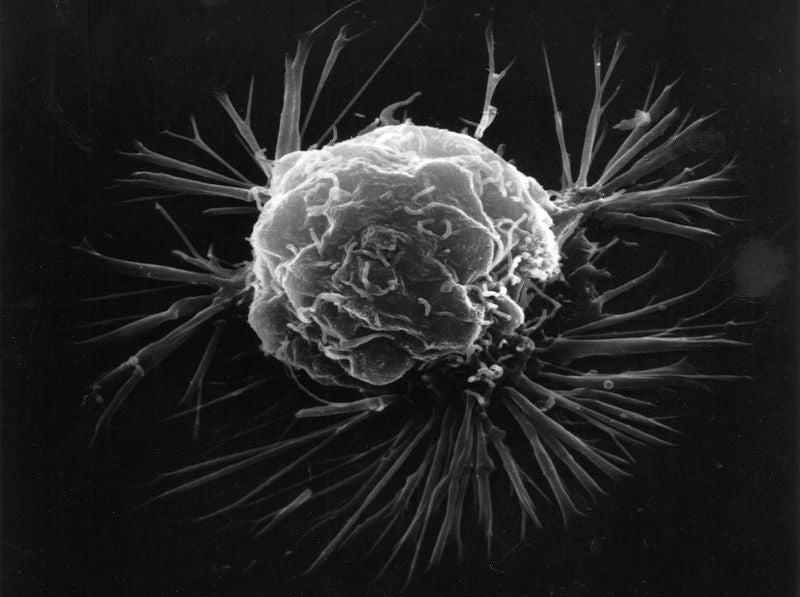
Seattle Genetics has commenced dosing in a Phase III clinical trial of its tucatinib drug in combination with Kadcyla (ado-trastuzumab emtansine) in HER2-positive (HER2+) breast cancer patients.
Tucatinib is an investigational, oral, small-molecule tyrosine kinase inhibitor with high selectivity for HER2 that is overexpressed in various cancer types, including breast cancer.

Discover B2B Marketing That Performs
Combine business intelligence and editorial excellence to reach engaged professionals across 36 leading media platforms.
The drug is said to lack significant EGFR inhibition, which is linked to toxicities such as skin rash and diarrhoea.
Seattle Genetics noted that Tucatinib demonstrated activity as a monotherapy, as well as in combination with chemotherapy and other HER2 targeting drugs such as trastuzumab.
It holds orphan drug designation from the Food and Drug Administration (FDA) for breast cancer patients with brain metastases.
Named HER2CLIMB-02, the multi-centre, randomised, double-blind, placebo-controlled Phase III study will compare the combination therapy to placebo plus Kadcyla in around 460 patients with unresectable locally-advanced or metastatic HER2+ breast cancer.

US Tariffs are shifting - will you react or anticipate?
Don’t let policy changes catch you off guard. Stay proactive with real-time data and expert analysis.
By GlobalDataThe trial will enrol patients who previously received a taxane and trastuzumab treatment in any setting.
The primary endpoint of the trial is progression-free survival, while secondary endpoints include overall survival, objective response rate and duration of response.
Data from the Phase III trial is expected to support registration in the US.
Seattle Genetics chief medical officer Roger Dansey said: “We are building a comprehensive strategy for tucatinib in combination with other medicines across a range of HER2-positive cancers.
“We are pleased to advance this tucatinib clinical trial with the vision of improving combination outcomes for patients with HER2-positive metastatic breast cancer who receive T-DM1. This trial has the potential to support tucatinib use in earlier lines of therapy.”
The company is also assessing tucatinib in the ongoing, pivotal HER2CLIMB trial in combination with capecitabine and trastuzumab for the treatment of pretreated, unresectable, locally advanced or metastatic HER2-positive breast cancer.
The drug is also being developed to treat other solid tumours, including colorectal cancer.



